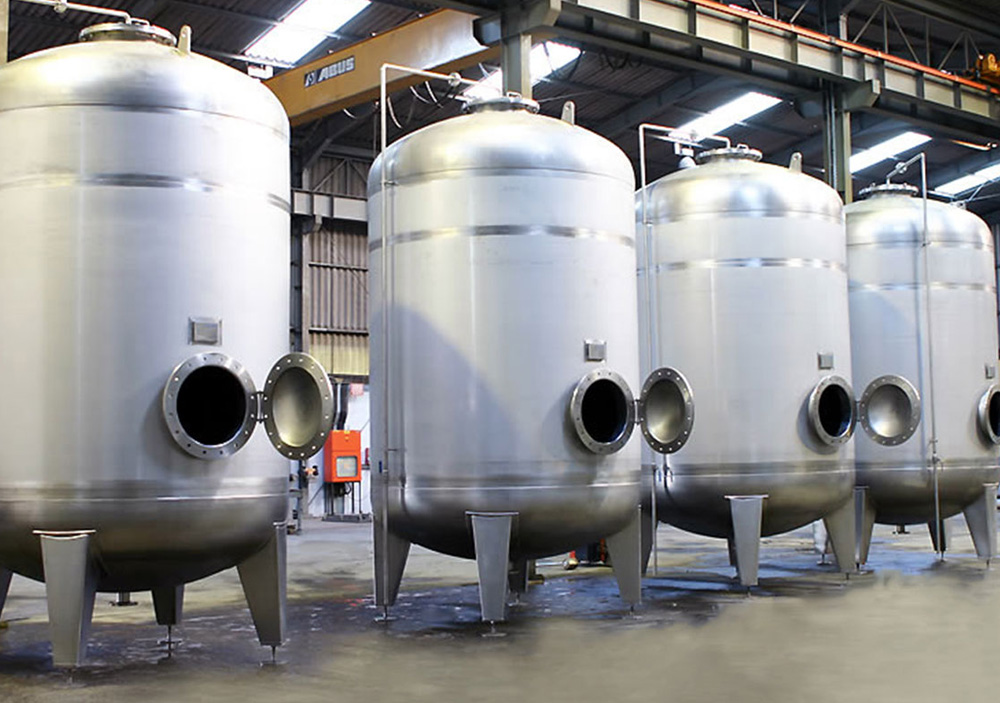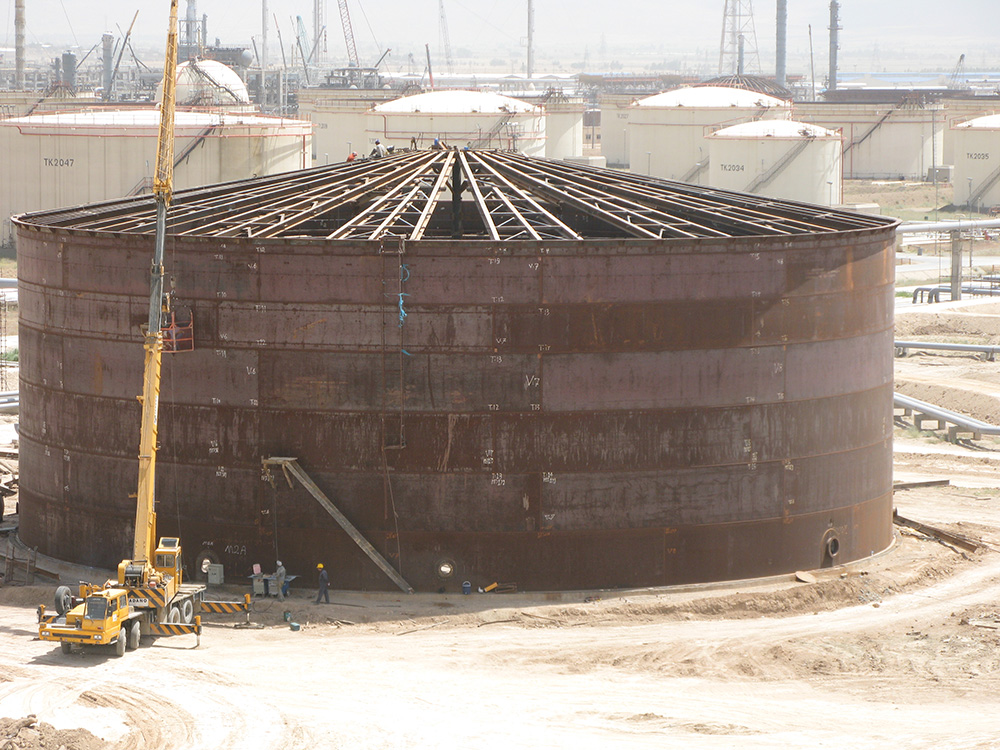In oil and gas refineries, where hundreds of sensitive and continuous processes operate simultaneously, refinery filters are among the most vital components for ensuring stable and safe performance. These filters play a key role throughout the production chain by removing impurities, reducing equipment wear, and preventing product contamination. However, their effectiveness depends heavily on timely and regular replacement.
Petrosazeh Beinolmelal Aram Company (Petrosazeh), as a leading manufacturer of industrial filters, supports the country’s industries by providing high-quality products tailored to harsh refinery conditions, helping them maintain optimal operational efficiency. This article explores the role of filters in refinery productivity and the importance of proper timing in their replacement.
The Key Role of Filters in Refinery Processes
Filters in refineries are used to remove suspended particles, contaminants, and impurities from gases and liquids. They are critical in essential systems such as:
- Turbine air inlets
- Fuel purification
- Lubrication systems
- Water and steam treatment
- Process gas filtration
Without effective filtration, suspended solids can damage sensitive equipment like pumps, compressors, or turbines—leading to increased corrosion, pressure drop, and production shutdowns.
Petrosazeh, utilizing international standards and advanced technologies, produces filters capable of capturing particles at micron and even sub-micron levels, thereby reducing pollutant levels and increasing equipment lifespan.
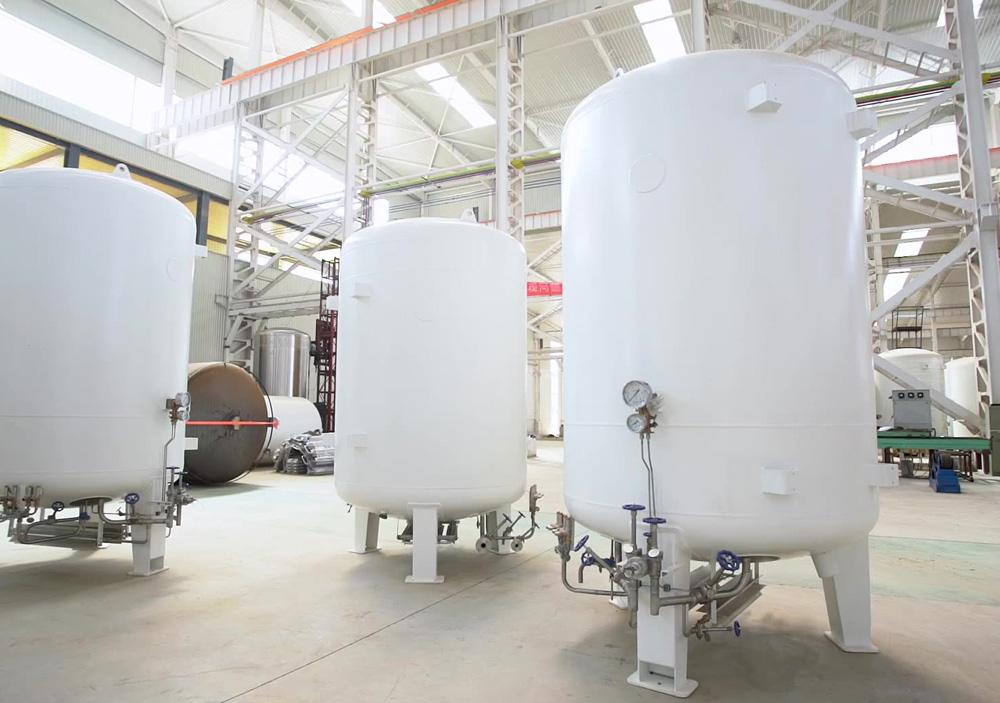
Filter Blockage and Its Impact on Refinery Efficiency
Clogging or saturation of filters is one of the most common issues in refinery systems. It leads directly to increased pressure drop, reduced fluid flow, and elevated thermal and mechanical stress on refinery equipment.
For example:
- If turbine inlet air filters are not replaced in time, output power may drop and fuel consumption may rise.
- In lubrication systems, clogged filters can allow abrasive particles to reach bearings, shortening their service life.
- In fuel transfer lines, increased resistance from saturated filters can cause pump overheating, seal damage, and reduced overall performance.
Field studies indicate that regular filter replacement can prevent 10–30% of efficiency losses in critical refinery units.
Benefits of Timely Filter Replacement
Enhanced Operational Efficiency: Clean filters optimize fluid flow, reduce unnecessary pressure on pumps, and stabilize process conditions—resulting in increased output and improved energy efficiency.
Reduced Maintenance Costs: Clogged filters accelerate equipment wear, leading to emergency repairs or parts replacement. Timely filter replacement helps avoid these additional costs.
Improved Process Safety: Sudden pressure drops, line ruptures, or corrosive fluid leaks can all result from worn-out or blocked filters. Routine maintenance boosts the overall safety level of the refinery.
Filter Replacement Scheduling: When and How?
Optimal replacement timing depends on several parameters:
- Filter type and holding capacity
- Quality of the incoming fluid
- Environmental conditions (e.g., dust or humidity levels)
- Pressure drop data from monitoring sensors
Petrosazeh manufactures filters equipped with condition monitoring capabilities that integrate with refinery smart monitoring systems. These filters feature pressure drop indicators and replacement alarms, eliminating guesswork and trial-and-error maintenance.
Filter Quality and Its Impact on Performance
A good filter should:
- Remove particles as small as 5 microns or less
- Resist high temperatures and pressures
- Offer long service life
- Cause minimal pressure drop during operation
Low-quality filters not only clog quickly but can also become a source of contamination themselves. Petrosazeh uses advanced fibers, multi-layered designs, and materials resistant to corrosion and heat to produce reliable filters for demanding operational environments.
Advanced Technologies in Refinery Filter Manufacturing
Nanotechnology in Filters: Nanofiber-based filter media enhance the capture of ultra-fine particles without significantly increasing pressure drop. Petrosazeh applies this technology in selected products.
Engineered Composites: New composite materials, such as polymer-ceramic or powder metallurgy combinations, improve resistance to corrosive fluids and high temperatures—ideal for acid lines, sulfurous gases, or high-pressure environments.
Smart Filters: Equipped with sensors to monitor performance, contamination levels, and replacement timing. These filters are compatible with SCADA and DCS systems.
The Role of Filters in Reducing Environmental Pollution
One of the main goals of modern refineries is reducing emissions and adhering to environmental regulations. Refinery filters significantly contribute to this goal by preventing the release of solid particles, toxic substances, and harmful gases into the environment.
For instance:
- Exhaust gas filters capture particulates and volatile organic compounds (VOCs).
- Process water filters prevent oil from entering water sources.
- Air filters preserve indoor air quality and reduce equipment corrosion.
Petrosazeh designs environmentally friendly filters that help refineries comply with national and international environmental standards.
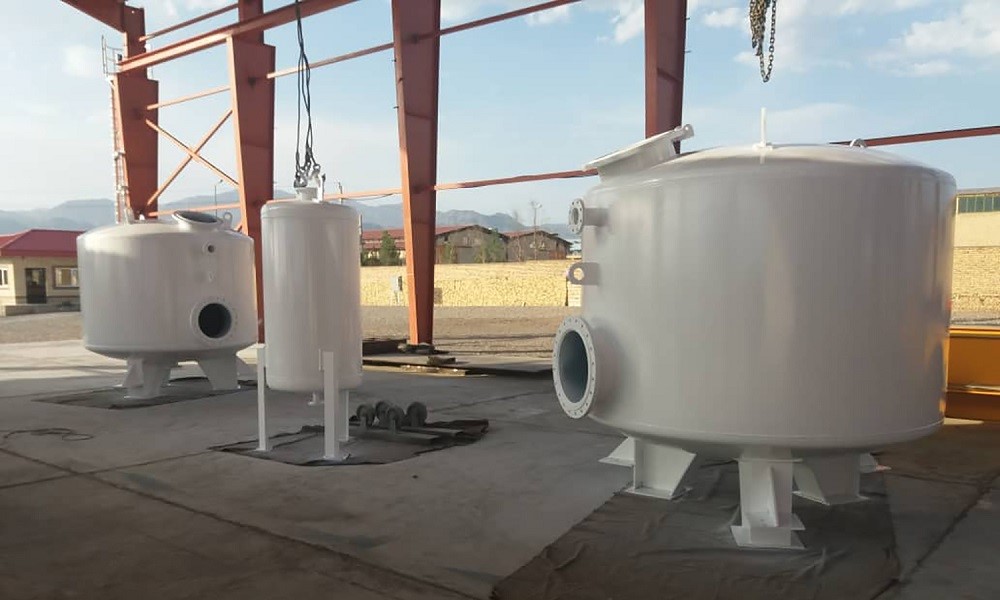
Common Challenges in Filter Management
- Lack of awareness about filter specifications
- Delays in procurement or spare parts supply
- Absence of regular maintenance programs and proper documentation
- Use of non-standard or mismatched filters for process conditions
Petrosazeh supports its clients with practical manuals, expert consultations, and after-sales services to address these challenges.
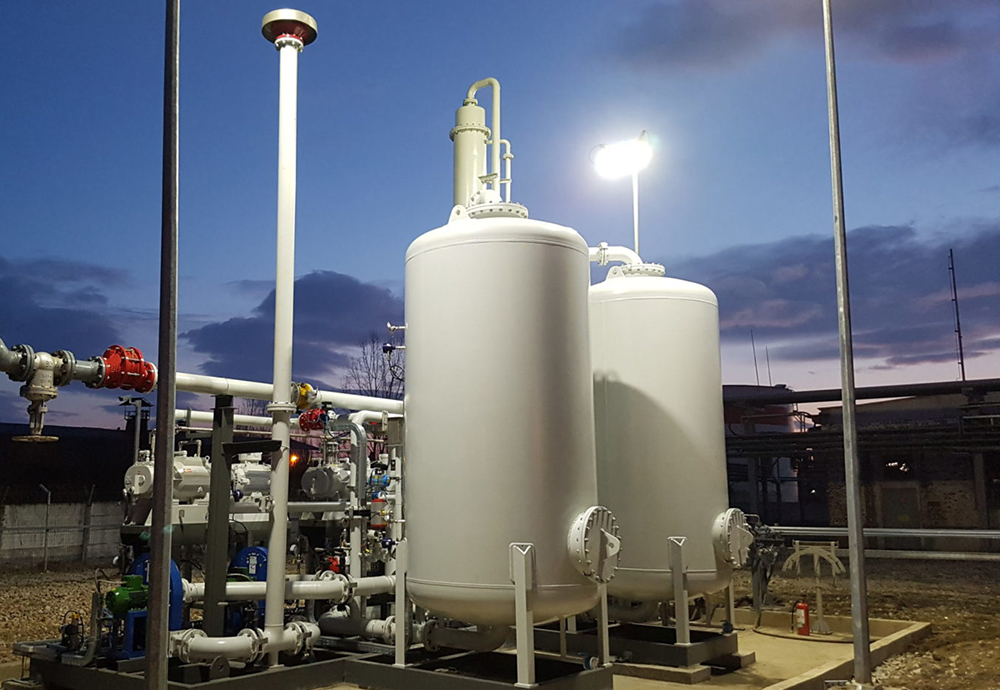
Practical Recommendations for Refineries
- Define key performance indicators (KPIs) for filtration systems, such as maximum allowable pressure drop
- Use certified filters approved by reputable authorities
- Train operations and maintenance teams to identify saturated or defective filters
- Establish a filter performance database for each refinery zone
- Conduct periodic technical audits in collaboration with expert manufacturers like Petrosazeh
Conclusion
Timely replacement of refinery filters has a direct and measurable impact on increasing efficiency, reducing energy consumption, improving safety, and lowering environmental emissions. Effective filtration management is a fundamental requirement for achieving stable and economical refinery operations.
Petrosazeh Beinolmelal Aram Company (IPS), with its wide range of industrial filters designed for harsh conditions and specific process requirements, is a trusted partner for refinery managers and engineers. With the right product selection, proper planning, and expert support, system performance can be consistently maintained at an optimal level.

